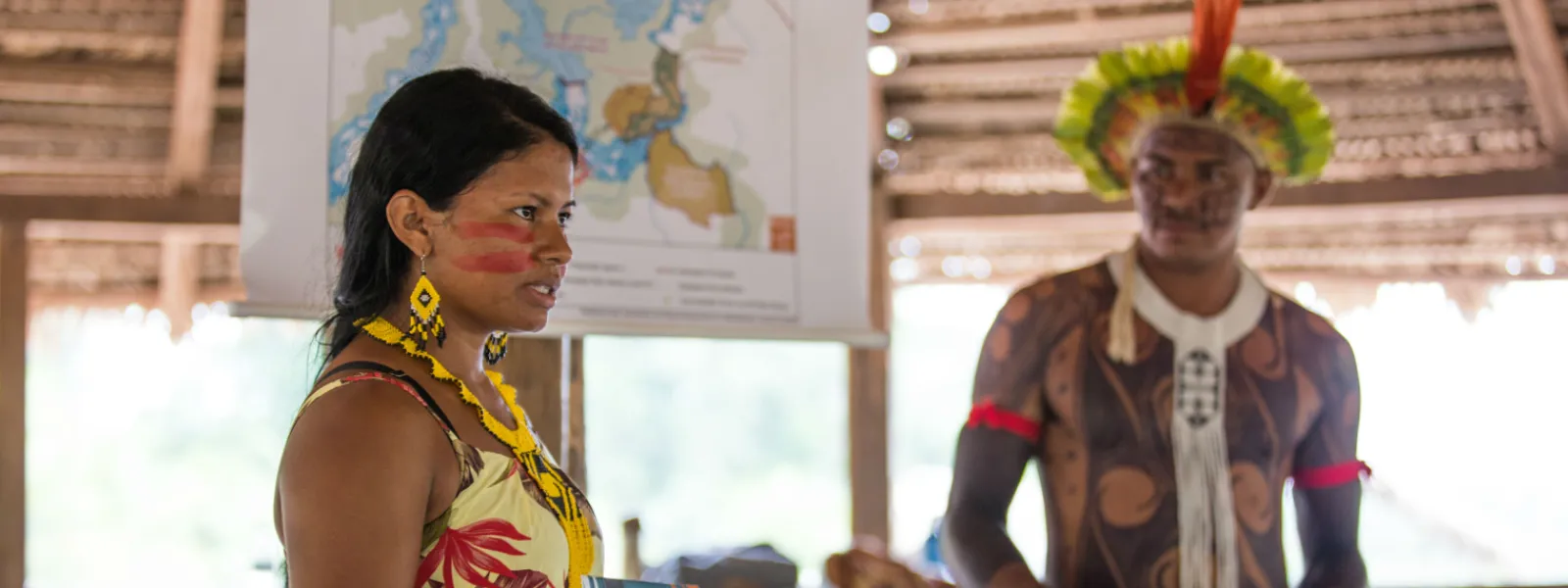
Inter-American Commission urges Brazil to address damages to indigenous peoples caused by Belo Monte Dam
Photo: Pedro Prado / FARPA / CIDH (CC BY 2.0).Following its visit to Brazil, the Inter-American Commission on Human Rights called the attention of authorities and civil society to the urgent need to address repeated violations of the rights of indigenous communities. The Commission highlighted the case of the Mïratu de Paquiçamba community, which has been affected by the construction of the Belo Monte Dam.
Rio de Janiero, Brazil. Concluding its visit to the country, the Inter-American Commission on Human Rights (IACHR) urged Brazilian authorities and society in general to recognize, address, and quickly resolve repeated violations of the human rights of indigenous communities. The Commission emphasized the case of the Mïratu indigenous community, affected by the environmental damages caused by the construction of the Belo Monte Dam.
In Brazil, indigenous communities “suffer from frequent incidents of violence and lack of attention from public services, in addition to increased difficulties and obstacles surrounding claims to their lands,” said Commissioner Antonia Urrejola Noguera, IACHR Rapporteur for Brazil, while presenting the Commission’s preliminary conclusions.
“Brazil has been one of the largest violators of the human rights of indigenous communities. In their meeting with the Commission, the Brazilian Indigenous Communities Organization (APIB) presented these cases and expressed its concern over the current political landscape, in which a discourse of hatred and racism has been growing, even among government institutions,” said Luiz Eloy Terena, APIB’s legal advisor.
On November 7, the Commission’s delegation visited Mïratu Village, located in the Paquiçamba indigenous region in the state of Pará. Mïratu is one of the indigenous communities affected by the Belo Monte Dam. It was the first time the Commission visited that area.
There, the Commission heard testimonies from indigenous people and fishermen, who are fighting to maintain their traditional way of life despite damages including: the death of thousands of fish; the pollution of the Xingú river; forced displacement from their lands without adequate relocation; and the development of culturally inappropriate projects. Village leaders reported that those damages have disproportionately affected women and children. The Commission also heard from representatives of Altamira, the city nearest the dam.
“We’d like to highlight the importance of the Commission’s historic visit to Mïratu Village, and recognize the negative impacts that the Belo Monte Dam has had on the human rights of the people of the Xingu River basin,” said Astrid Puentes Riaño, co-director of the Interamerican Association for Environmental Defense (AIDA). “It is now up to the government of Brazil to adopt the decisions and recommendations of the Commission, complying with the rule of law and protecting the people of their country.”
During the visit, those affected by the dam were especially concerned over next year’s scheduled implementation of a plan to manage the flow of the Xingú River. Known as a consensus hydrogram, it would divert the water that indigenous and riverine communities, as well as plants and animals, rely on to survive.
“The commissioners had the opportunity to confirm the severity of the impacts and the understand the urgent need to revise the criteria used to define the residual flow that the Xingu must maintain in order to guarantee the subsistence and culture of indigenous and riverine communities in the Vuelta Grande region,” said Bivany Rojas from the Socio-environmental Institute (ISA).
In 2011, communities along the Xingu—represented by AIDA, the Paranese Society for the Defense of Human Rights (SDDH), and Justiça Global—filed a complaint against Brazil, bringing the case in front of the Commission. That same year, the Commission granted precautionary measures to affected indigenous communities.
The case formally began in December 2015, and participating organizations presented final arguments in May of this year. Based on those and the arguments put forward by the the Brazilian State, the Commission will publish a report concluding whether human rights violations occurred from the construction of the Belo Monte Dam. They may then decide to issue recommendations for Brazil to remedy those damages.
Demonstrating progress and a respect for the rights of indigenous communities—in cases like the Xucuru, the Xingu, and Guyraroka peoples—represents an important opportunity to strengthen rule of law and embrace progress in Brazil.
press contacts:
Victor Quintanilla (Mexico), AIDA, [email protected], +521 5570522107
Isabel Harari (Brazil), ISA, [email protected], +5561998261213
